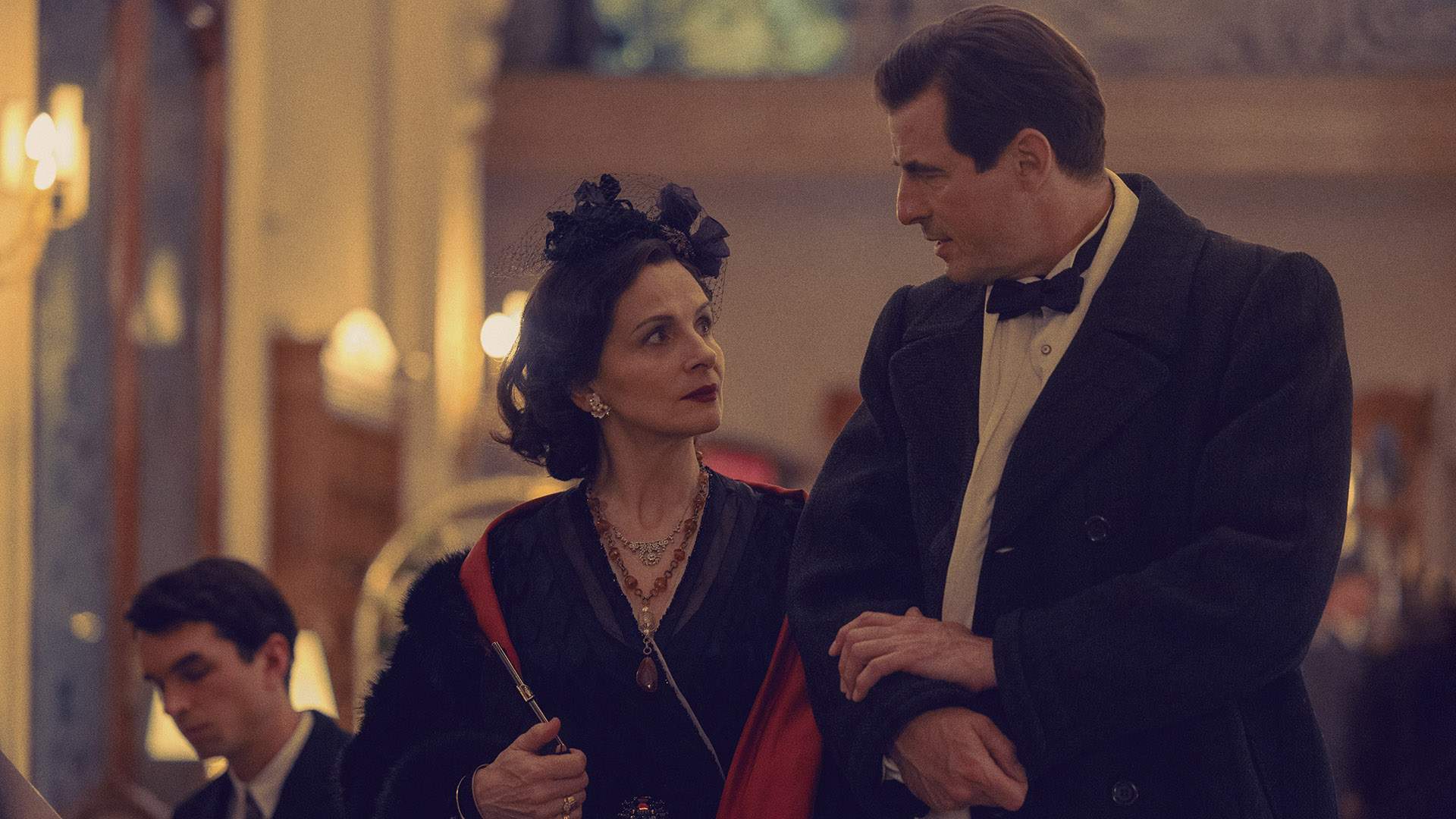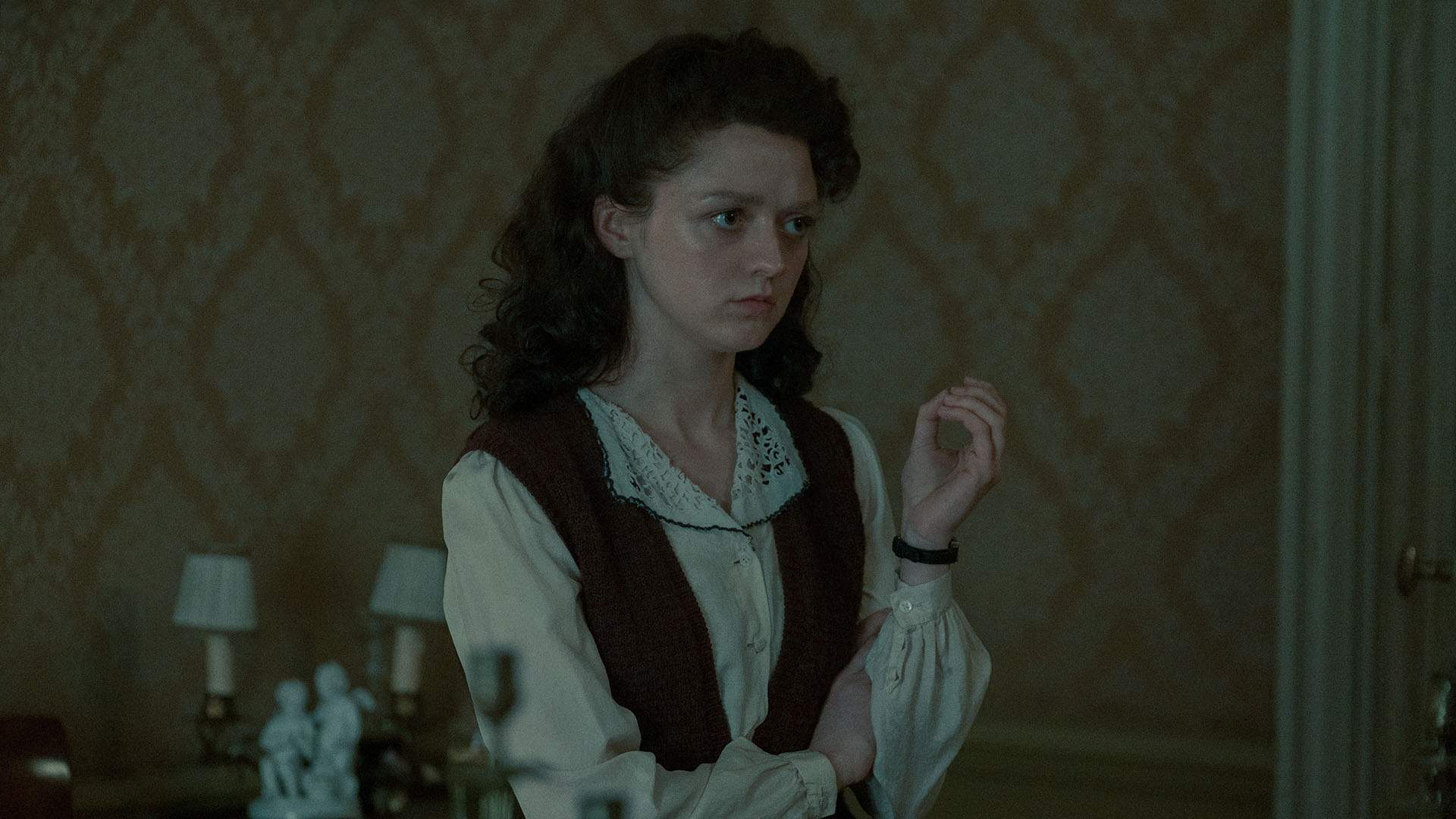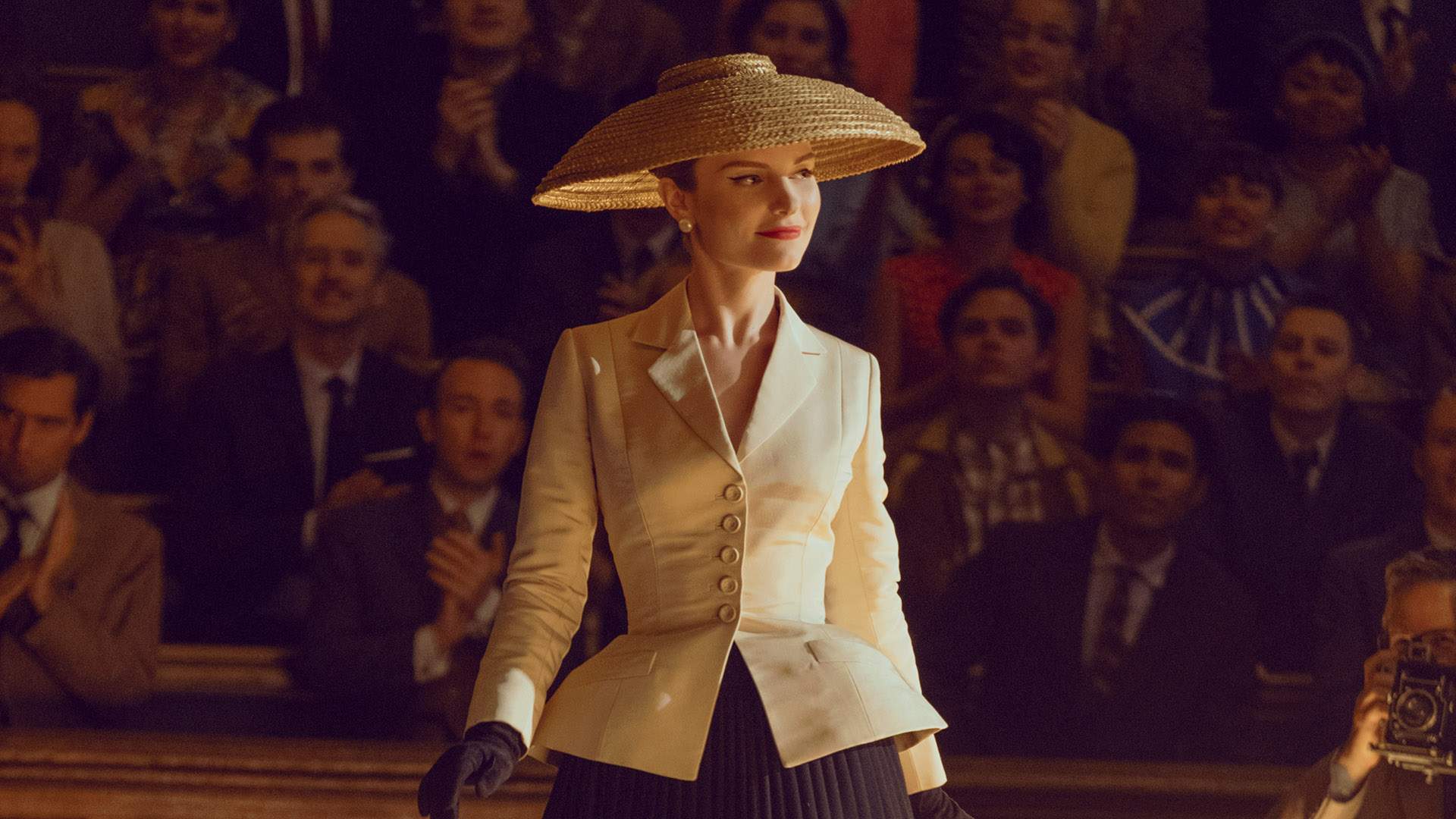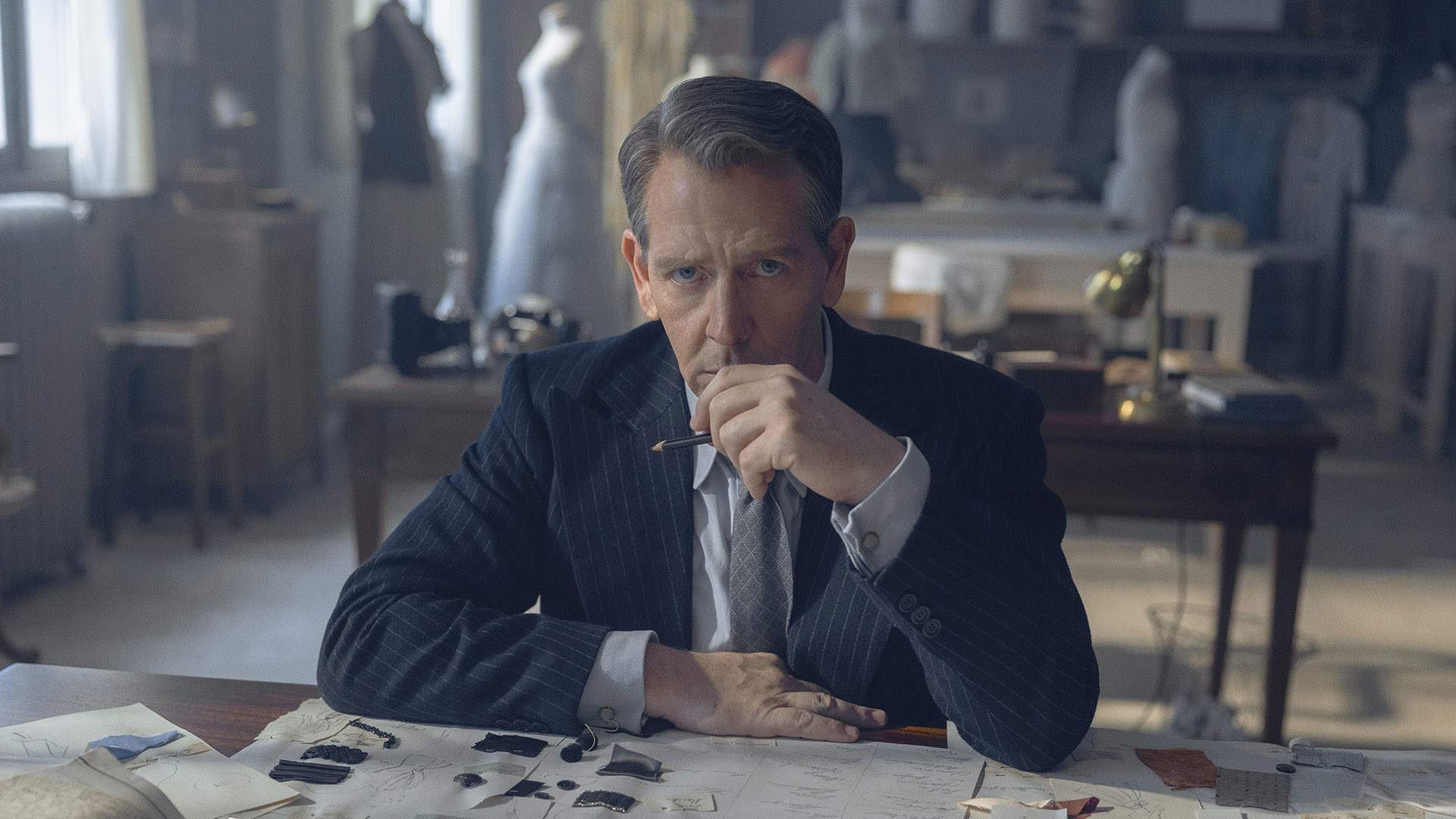Stylish Drama 'The New Look' Stitches Together Christian Dior and Coco Chanel's WWII and Post-War Histories
Ben Mendelsohn and Juliette Binoche star in this series about the two fashion figures, plus the importance of haute couture to French culture after the war.
The New Look, Apple TV+'s ten-part series about Christian Dior and Coco Chanel, hasn't chosen its points of focus because they were frequently in each other's company; as depicted here, at least, they weren't. Instead, it's a portrait of rivals, but it isn't that concerned with why the two Parisians might be adversaries beyond their shared field. That said, they're tied by more than both being French fashion figures who were working at the same time, made pioneering haute couture choices and started labels that retain household recognition today. And, when the show opens in 1954, it does so with Chanel (Juliette Binoche, The Staircase) offering harsh words about Dior (Ben Mendelsohn, Secret Invasion) to the press as she's about to unveil her first post-war collection. Her chatter is crosscut with his at the Sorbonne, where he's being honoured — and asked by students why he kept working during the Second World War while Chanel closed her atelier.
Dior's answer: that such a description of the two designers' actions during WWII is the truth, but that there's also more truth behind it. Unpicking the reality — and stitching together Dior and Chanel's plights at the same time — is the series' mission from Wednesday, February 14. The garments that its two couturiers make might be pristine in their stylishness, but neither's history can earn the same term. Creator Todd A Kessler (Damages, Bloodline) makes a drama about choices, then. Again, it isn't fuelled by the pair being in close physical proximity, which only happens twice in the show — or even acrimony between them — but by comparing and contrasting the moves that Dior and Chanel each made during Nazi-occupied Paris and immediately afterwards.

Kessler takes the series' title from words uttered by Harper's Bazaar editor-in-chief Carmel Snow (Glenn Close, Heart of Stone) upon seeing Dior's debut collection in 1947. The New Look also takes its overarching perspective from the notion that haute couture's impact in assisting to revive French culture following the war was revolutionary and "helped humanity find beauty and the desire to live again" (to quote how Dior is introduced as he's being feted at his big retrospective). With Dior and Chanel's prowess treated as a given, the bulk of its frames, handsomely shot as they are — and filled intermittently with gorgeous gowns designed by Dior and his previous employer Lucien Lelong (John Malkovich, Billions) — hone in on the personal. (Atelier antics are weaved in and out, but never at the level of detail delivered by 2014 documentary Dior and I, about Raf Simons' first collection for the House of Christian Dior 65 years later.)
The 1950s are pure framing for The New Look. The majority of its narrative charts Dior and Chanel from 1943–47, with the fact that he'll be so successful that he's celebrated mere years later and she'll eventually return to fashion instantly already established. Indeed, while the series charts their professional journeys over the period, work is rarely the source of its tension. Rather, Dior's difficult decision to leave Lelong to start his own fashion house, and the also tricky choices in getting established, help flesh out his character. For Chanel, so does her angling over the perfume side of her business, legal battles included. Everyone watching already knows the names Dior and Chanel, after all, and that both labels endure today, even if they've never donned clothing or scents bearing either's monikers.

Dior keeps his needle in hand in Vichy France — for Lelong, as a nobody with no fame of his own, and under spirited protest if he ever gets wind of who'll be wearing his dresses. His justification, as he tells fellow designers such as Cristóbal Balenciaga (Nuno Lopes, Les derniers hommes) and Pierre Balmain (Thomas Poitevin, Encore vous?): that his paycheque helps support his younger sister Catherine (Maisie Williams, Pistol). She's fighting the occupation as part of the French Resistance. When Catherine is captured by the gestapo, tortured and sent to a work camp, Christian becomes a picture of guilt as he desperately endeavours to find her, or even just discover if she's still alive. The New Look's Dior is a man haunted, always, in a softer part for Mendelsohn and it suits him.
The already-renowned Chanel has downed tools, but relies upon Nazi links to first secure the release of her captured nephew André (Joseph Olivennes, Deep Fear), a French soldier, and then help herself. The Hotel Ritz, where she lives, is a German base. Spy Hans Günther von Dincklage (Claes Bang, Bad Sisters) is soon in her bed. A dinner with Heinrich Himmler (Thure Lindhardt, Hammarskjöld), using antisemitic laws to her advantage and a stint of active collaboration — roping in her old friend Elsa Lombardi (Emily Mortimer, The Pursuit of Love) as well — all follow. Lombardi has been fictionalised, but the ins and outs of Chanel's choices haven't.

The New Look doesn't even dream of sewing in a defence of Chanel. Where Mendelsohn plays vulnerable with potency and depth, Binoche's part is all calculated and self-serving opportunism. If their characters were dresses, his would sport elaborate lace and hers flashy sequins. Their performances are equally impressive, though. In what might be the least typically Mendo role of his recent career, the Australian Animal Kingdom, Starred Up, The Outsider and Cyrano actor is quietly masterful. In ensuring that Chanel's complications are on full display but also never excused, Binoche threads the needle expertly. Similarly superb: Game of Thrones' Williams, including in making the case that Catherine deserves to be more than a supporting player; Bang, again excelling at villainy; and Mortimer, who makes the show's most erratic character feel as real and lived-in as its protagonists.
With Kessler himself, Station Eleven alums Jeremy Podeswa and Helen Shaver, and 2021 Palme d'Or-winner Julia Ducournau (Titane) in the director's chairs, there's no faulting The New Look's technical handiwork as it spins its fascinating, complex story. Opulence abounds visually, intricacy thematically. Learning more about the craft of haute couture isn't the show's remit, however — as glaringly apparently whether you're a fashion diehard or only know Dior and Chanel's names — but contemplating the decisions behind some of fashion's biggest labels, and the choices made when life is anything but cut to a pattern, is ready to wear.
Check out the trailer for The New Look below:
The New Look streams via Apple TV+ from Wednesday, February 14, 2024.





